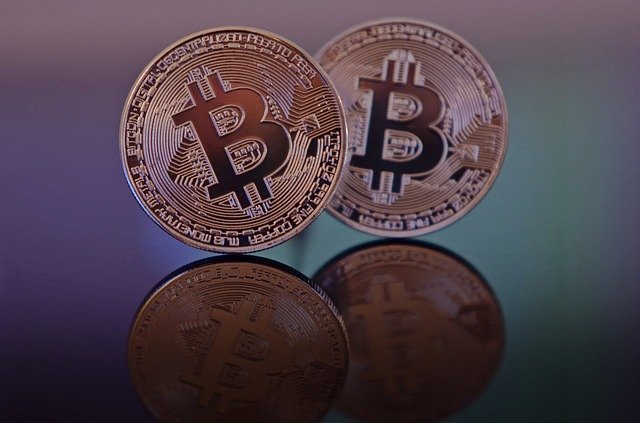This is an Urgent Note Regarding 2017 Cryptocurrency Trades for U.S. taxpayers – Please Resteem
There seems to be a general community implication across various forms of media that crypto-for-crypto trades are not taxable for the calendar year ending December 31, 2017 (i.e. before the tax reform rules in place for 2018). This is probably the most commonly overlooked assumption being passed along the internet regarding crypto-currency taxation right now, and in most cases it is wrong.

What does it mean to “imply” and why is it dangerous? Are influencers and mainstream media lying to me?
First, I think it makes sense to clarify what I mean by "implications." Here is the definition of imply:
“To involve or indicate by inference, association, or necessary consequence rather than by direct statement” (Source: https://www.merriam-webster.com/dictionary/imply)
When many in the social/mainstream media are commenting on like-kind exchanges, they are reporting that after 2017 the like-kind exchange rules no longer apply to crypto-curency. Or something to the effect of now Trump is taxing all cryptocurrency gains starting in 2018. Many of the statements made are correct statements. The danger is in the incorrect implication that all crypto-for-crypto trades prior to 2018 are nontaxable - depending on the facts/circumstances, this could be very unlikely (to be discussed below).

And in other cases, the reporting is just plain incorrect. In one case, even before tax reform discussions, I’ve seen youtube video where an influencer (with as of today 80K+ subs) state that he thinks crypto-for-crypto trades in 2017 are not taxable, this was a few months old video. My cringe level was over 9000. I watched uncomfortably as potential misinformation spread like a weed accross various media forms.
This article is meant to be helpful and warn of the the assumptions that could be overlooked by many. And to set the record straight once and for all.
So, now on to the truth behind Like Kind Exchanges

What is a like-kind exchange (before 2018)?
On December 22, 2017, the white house signed the Tax Cuts and Jobs Act (HR-1). In this Act, for tax years after 2017 (2018+), like-kind exchange rules only apply to real property. However, for tax years before 2018, if a U.S. taxpayer exchanges business or investment property solely for business or investment property that is like kind in nature, the IRS section 1031 provides that no gain or loss is recognized. This means the exchange is a non-taxable event.
There are a complex set of rules, some discussed in this article, and some outside of the scope of this article. The items discussed below are just a handful of issues specific to cryptocurrency.
Issue #1 – Are Like Kind Exchanges in 2017 Valid?
Even for tax year 2017, prior to tax reform, assuming that a like-kind exchange rule under 1031 applied to all crypto-for-crypto swaps is most likely incorrect.
Like-kind exchange rules are tedious and require a consistent use-case for the exchanged property; the only underlying difference in the investment should be quality/grade.
There is a detailed discussion in one of my prior articles, before this like kind subject became a hot topic. As discussed in the article, in some cases, the IRS would not allow investable gold for collectible gold coin swaps to be like-kind exchanges even though the swapped coin is made up of the same metal. In another example, gold for silver swaps were disallowed because the two types of metal have different use cases.
In the sphere of crypto, if Coin A is Digital Gold, Coin B is faster transactions, Coin C is medium of exchange for resources/utility cases, Coin D is a digital smart-contract kitten, it is very ambiguous whether A, B, C, or D would be like-kind. The safe route would be assume they aren't like kind.
If you would like to back up and start from the beginning, see the article here:
https://steemit.com/money/@cryptotax/cryptocurrency-like-kind-exchanges-what-can-we-learn-from-gold

Issue #2 – Taking the Like Kind Position
In light of issue #1, let's just say your tax advisor is a financial wizard and helps you secure a valid like-kind exchange tax position for your crypto for crypto swaps. Another thing that is not being mentioned in much of the social media and mainstream media hype is, even if the like-kind exchange rules apply for 2017, there is a documentation requirement. The appropriate trades are required to be documented/reported to the IRS on Form 8824:
https://www.irs.gov/pub/irs-pdf/f8824.pdf
https://www.irs.gov/instructions/i8824
In other words, a U.S. taxpayer has to let the IRS know that they are treating exchanges as like-kind. If a taxpayer fails to report a like kind exchange on the form, and then the IRS eventually disagrees with the position, it might appear to the IRS as though the taxpayer was intenionally failing to report income (say hello to penalties).

Issue #3 – Like Kind for Miners?
Do you mine cryptocurrency? Is cryptocurrency inventory in your trade/business? Whether the sale of your mined currency is ordinary income, or a capital gain, is a questionable issue.
Inventory property is treated as an ordinary income asset (not capital gains/losses). Also, inventory property is not qualified for a like-kind exchange.
More information here:
https://steemit.com/money/@cryptotax/bitcoin-earned-from-mining-is-taxable-income-how-to-calculate

Issue #4 – Like Kind for Securities
Property treated as Securities is not qualified for like-kind exchanges. So certain trades of Bitcoin/ETH for ICO tokens may not be qualified by default as the SEC can re-characterize such tokens under U.S. securities laws:
More information here:
https://steemit.com/money/@cryptotax/your-ico-tokens-may-be-securities-does-it-impact-your-u-s-taxes
Also, as @lpfaust pointed out in his recent article,
“Tokens which have Proof of Stake (POS ) and Delegated Proof of Stake (DPOS) could potentially be construed as financial interests.” Just another reason why the rules get very unclear.
Issue #5 – Personal Use of Property
If you have a bitcoin wallet that you use for personal transactions (i.e overstock, expedia etc), any crypto-crypto swaps you make that are deposited into this wallet, such crypto may be tainted from the perspective of section 1031. The like kind exchange rules apply to property held for an investment or for use in a trade/business; generally it would not apply for property that is used for personal reasons.

Takeaway
For 2017 individual trades will need to be evaluated, even if crypto trades were not cashed out in U.S. dollars. Like Kind Exchange is not a default position to every trade.
Contact your tax advisor and figure out a game plan.
Don’t trust everything that is in the media.
This article is not meant to be insulting and throw shade at the crypto influencers. Rather, this article is for protection of our community.
Disclaimer: This series contains general discussion of U.S. taxes in a developing and unclear area of tax law. As always, you should consult your own tax advisor in your jurisdiction to determine your specific situation as this is not personal advice; and consider any future guidance by the Congress/IRS after the date of this article. Under Circular 230 to the extent it applies, this article cannot be used or relied on to avoid any tax or penalties in the U.S., its States or any other jurisdictions. This post/book does not create a client relationship between the author and the reader.
Picture Credits https://pixabay.com/en/image-set-interface-internet-3046639/
https://pixabay.com/en/bitcoin-btc-eth-crypto-mining-2714196/
https://pixabay.com/en/bitcoin-cryptocurrency-btc-currency-2865809/
https://pixabay.com/en/finance-accountancy-savings-tax-2837085/
https://pixabay.com/en/writing-pen-man-boy-male-ink-1149962/
https://pixabay.com/en/mobile-phone-smartphone-keyboard-1917737/
https://pixabay.com/en/image-set-interface-internet-3046639/
https://pixabay.com/en/bitcoin-btc-eth-crypto-mining-2714196/
https://pixabay.com/en/bitcoin-cryptocurrency-btc-currency-2865809/
https://pixabay.com/en/finance-accountancy-savings-tax-2837085/
https://pixabay.com/en/writing-pen-man-boy-male-ink-1149962/
https://pixabay.com/en/mobile-phone-smartphone-keyboard-1917737/
I agree entirely with your assessment of the situation. Although there is still some ambiguity with the law for 2017, the facts and circumstances surrounding the current environment (SEC guidance, critical reception by taxing authorities) combined with the limited benefit associated with taking a position of like-kind treatment (potential deferral for 1 year in the case of high frequency traders) lead me to the opinion that not using 1031 is the way to go.
To play devil's advocate, the fact that they had to codify the provision suggests that 1031 was available to taxpayers prior to 2018. Assuming that Form 8824 was filed correctly and the criteria of 1031 are met, a taxpayer does not have any specific laws or regulations precluding them from taking the position. Additionally, a taxpayer is at risk of paying more than they are legally obligated to pay if they do not claim like kind exchange.
Overall, I believe the conservative approach is more likely than not the correct position to take.
So your article made me start thinking about steemit as a platform and how we internally convert SBD to Steem at the given rate defined by the platform. Are there any general tax laws that apply to this coin to coin conversion? Let's say Person A gave Person B Steem for SBD. Could there be an argument that this is a like-kind exchange? Obviously, I am not asking you this as tax advice but I think it's an interesting situation to consider, maybe even write an article about.
Helpful information
My accountant has always been wonderful but I've got a bad feeling he is going to freak out when he has to look into all this. Maybe I'll wait until mid-March for my appointment so I won't be the first to mention cryptocurrencies or Bitcoin. Thanks for the post as always!
Trust me the earliest notice possible is best! Good luck!
Right? Imagine the millennials who've never worked, we have no clue how this works and being aware of the concept of freedom, it looks lame and unnecessary.
@OriginalWorks
To call @OriginalWorks, simply reply to any post with @originalworks or !originalworks in your message!
This post has received a 3.01 % upvote from @booster thanks to: @cryptotax.
scary business :/
Steem Bot Tracker websitevote for @yabapmatt for witness!You got a 3.79% upvote from @postpromoter courtesy of @cryptotax! Want to promote your posts too? Check out the for more info. If you would like to support development of @postpromoter and the bot tracker please